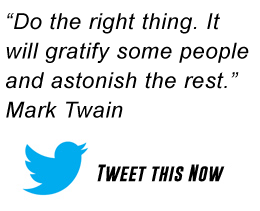Church leadership is about how we behave, communicate and manage – while leading people toward a shared goal. Ministry leadership is responsible for influencing how work gets accomplished, and effective leaders, have certain traits and characteristics that affect how they interact with others.
Successful professionals demonstrate leadership qualities while continuing on their own personal development journey. They are life learners and take pride in developing others and watching them grow.
Church leadership is about how we behave, communicate and manage. Click To Tweet
10 Traits of Effective Church Leaders – Characteristics of Christian Leadership that Inspires Others
1. Influential
Leaders are able to influence others by helping them see what needs to be done and then demonstrates the path forward. The most influential leaders inspire us without us even being aware of it – leading by example. Did you ever see someone pick up a piece of trash off the street and feel compelled to join in?
2. Big Picture Thinker
People often get stuck in their own little corner of the world and need help seeing things from a bird’s eye view. Leaders are big picture thinkers and see things from a broad perspective. They get people excited about what they’re doing by painting a picture that allows them to see why, what they do, is important. Painting this big picture helps employees and volunteers recognize how their work impacts those whom the church is reaching.
3. Believe the Best in People
Effective leaders always give others the benefit of the doubt (“a favorable judgment given in the absence of full evidence”) and believe the best in people. A true leader first gathers all of the facts before drawing a final conclusion. They postpone reaction to negative information until they are able to gather all of the facts and have a good understanding of the event or situation
4. Teacher and Mentor
Leaders are gifted teachers and love to help others develop. They model leadership principles and help others to identify personal growth and professional development opportunities.
They are not threatened by people who are smarter than they are and they take pleasure in seeing others succeed. They are comfortable delegating responsibilities and enjoy seeing others develop. Pulling people up behind us is how we all grow.
5. Master Delegator
The best lessons are learned by making mistakes, and allowing others to gain knowledge from their own mistakes, is an invaluable lesson.
Leaders develop others by delegating responsibilities, allowing them to make mistakes and helping them learn from their blunders.
All of us have a starting point in our professional development, and allowing others to learn through their own experiences, helps them to gain self-confidence and grow professionally.
6. Empower Others
Leaders empower others and recognize that making front-line decisions, and taking risks, are part of the development and learning process. People need to be comfortable taking risks, making decisions, and learning from their mistakes. Establishing boundaries and allowing others to test decision-making, and problem solving, not only helps with employee development but also takes the bottleneck out of addressing customer issues—whether they are internal (employee to employee) or external (organization to customer).
The most important aspect of this is not allowing the employees (or volunteers) to feel like they are hanging out there by themselves. Debriefing after a mistake is made, and coaching them to think of what might have been a better approach, is part of the learning process. It is very much like parenting: sometimes you need to allow your kids to fall down and pick themselves back up. That is how they learn.
7. Team Player
Leaders are team players and work well with others to get things done. They operate out of a win-win philosophy and help others to collaborate and come to agreement in tasks. They are skilled at managing team dynamics and work to develop team cohesiveness. They do this by holding team members accountable for their actions and keeping them focused on the team goal.
8. Celebrates Successes
Effective leaders are able to recognize success and help their team celebrate those achievements. This is a critical component of team function and development. Rewarding performance and showing appreciation by celebrating successes, helps to keep team members engaged. Celebrating even small successes provides the motivation and fuel to go after the bigger targets – no success is too small to celebrate!
9. Have Balanced Priorities
 Leaders have a good understanding of their personal priorities and are able to keep all areas of their lives balanced. They understand the importance of setting personal boundaries and giving family as much focus and attention as their professional responsibilities.
Leaders have a good understanding of their personal priorities and are able to keep all areas of their lives balanced. They understand the importance of setting personal boundaries and giving family as much focus and attention as their professional responsibilities.
They unapologetically recognize that leadership is a marathon and not a sprint, and they understand the importance of pacing themselves so they don’t run out of gas before the race is complete.This can be difficult to do, particularly in the church where emergencies are constant, but successful leaders know how to work faster and more efficiently to achieve this balance.
10. Ethics and Integrity in Business Practice
The success of any ministry is built on the trust of its congregants, volunteers and general public. The best way to gain that trust is to demonstrate ethics and integrity in church operations, not because of legal requirements, but because it is the right thing to do.
The integrity of the ministry affects all customer groups and every area of church operations. This is why weaving ethics and integrity into the core fabric of the ministry is so important.Churches that operate with integrity do so intentionally and make it part of their culture and everyday practices. This culture of honesty and trust helps orient new employees to understand that operating with integrity is “the way things are done around here.”Building integrity into the culture is the foundation for ethical practices. Churches that strive to do the right thing benefit by establishing a reputation for high ethical standards. It starts at the top and flows throughout the entire organization.
A true leader is marked by their ability to replace themselves through believing in others and helping others maximize their potential.
Strong leadership affects an organization’s ability to meet goals and achieve its mission. Church leaders should set the standard for behavior, and continually work toward preparing and developing others for greater responsibility.
For more on church leadership, check out these 50 Bible passages about leadership.

